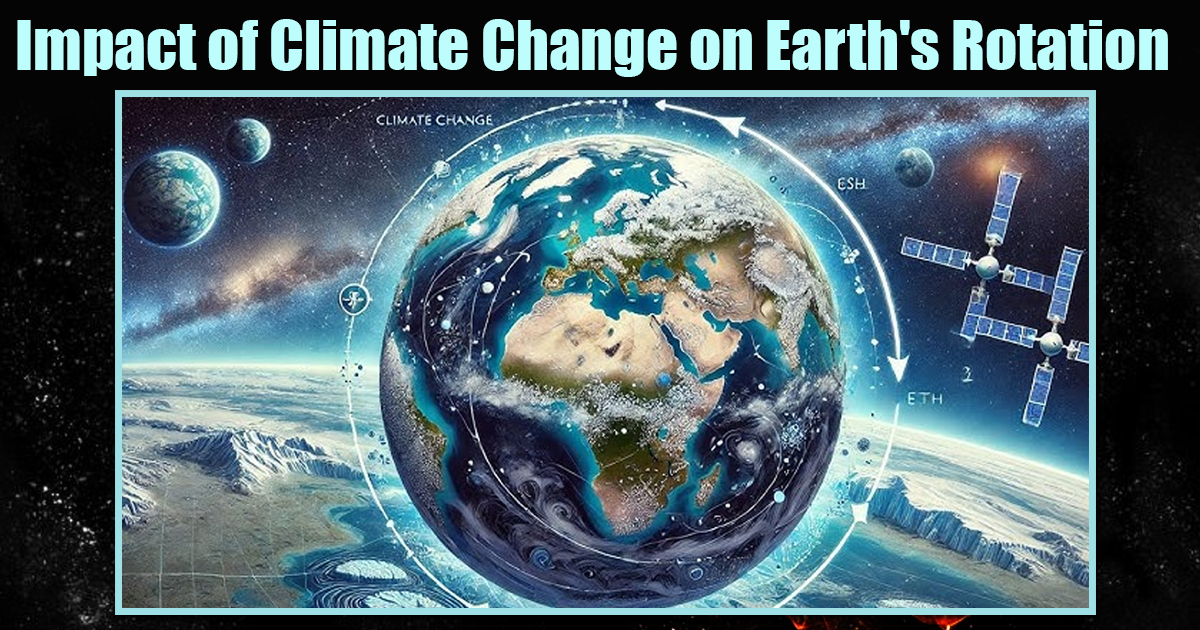
Context
Recent studies indicate that climate change is affecting Earth’s rotation.
- Polar Ice Melt and Water Redistribution: The melting of polar ice causes water to shift towards the equator, resulting in a bulging effect that slows Earth’s rotation due to the law of conservation of angular momentum.
- Conservation of Angular Momentum: This is a fundamental principle of physics, stating that a spinning system will maintain its spin unless an external torque is applied.
Effects of Climate Change on Earth’s Rotation
- Slowing Rotation: In the past 20 years, the redistribution of water has slowed Earth’s rotation by approximately 1.3 milliseconds per century. Projections suggest this could increase by up to 2.6 milliseconds if high greenhouse gas emissions continue.
- Impacts on Timekeeping Systems: The slowdown in Earth’s rotation affects precise timekeeping systems, such as atomic clocks, which are crucial for GPS, stock trading, and space travel.
- Lunar Tidal Friction: This natural phenomenon also contributes to Earth’s rotational slowdown by about 2 milliseconds per century, further amplifying the effects of climate change.
- Leap Seconds: Since the 1970s, 27 leap seconds have been added to account for Earth’s slowing rotation. Scientists have proposed a negative leap second to address this issue, but accelerating ice melt might delay its implementation.
- Shift in Earth’s Rotation Axis: The melting ice also causes slight shifts in Earth’s rotation axis, leading to minor changes in the point where this axis intersects the Earth’s crust over time.
Negative Leap Second
- Definition: A negative leap second is a proposed adjustment to Coordinated Universal Time (UTC) where one second would be subtracted to address Earth’s increasing rotational speed, which shortens days over time.
- Current Status: This adjustment is planned for 2026 but has not been tested, creating unprecedented potential challenges.
- Challenges: While systems can accommodate additional seconds, subtracting a second poses new difficulties, particularly for computers and networks.




